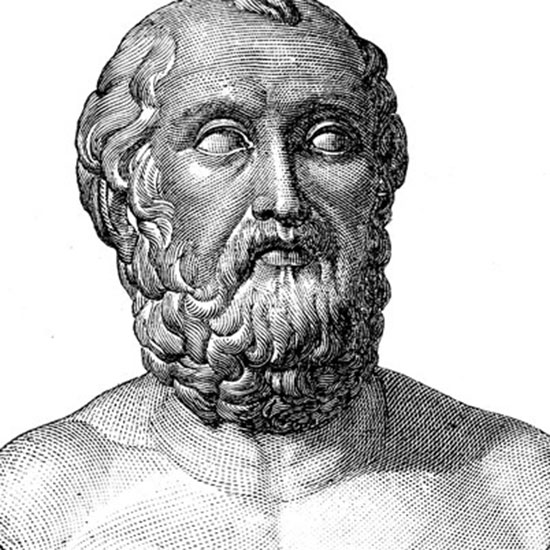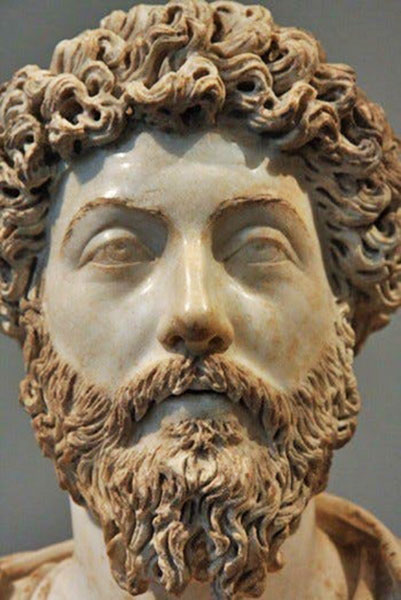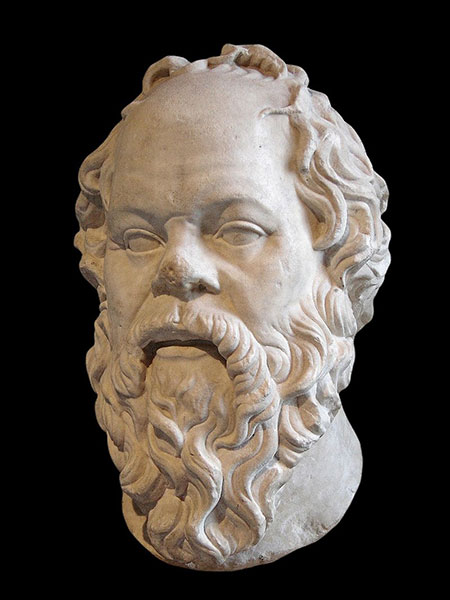|

by Van Bryan
August 22, 2025
from
ClassicalWisdom Website

Plato
Lord of the
Rings, Stoics, and Justice.
The Legacy of Plato's Republic.
It's
one of the most important and influential works from
ancient Greece.
And that's really saying something.
An investigation into what would make for an ideal
state, Plato's Republic outlines the essential nature of
justice for our society.
It's
an astonishingly rich text which is somehow more than
what its reputation suggests.
Along the way, for instance, he tells a tale of a magic
ring that makes its users invisible, but corrodes their
morals.
If
that idea sounds familiar, it's because the story helped
inspire J.R.R. Tolkien to write The Lord of the Rings.
Plato also outlines the four virtues, which would be
later embraced by Stoic philosophers and early
Christians.
These ideas alone have had a massive impact on history
and culture, but here they're just one aspect of a much
larger philosophical project.
Yet The Republic is not without its darker side:
not all of Plato's ideas may seem so inspiring given
the weight of history between his time and ours.
Although perhaps that's all the more reason to dig in:
to discover the wisdom that works alongside that
which doesn't.
We're fond of the concept of the Great Conversation here
at Classical Wisdom.
When
we engage with Plato, we're free to agree and disagree
with different elements to come to our own conclusions.
Moreover, we can see how his legacy blends with the many
he inspired:
Tolkien,
the Stoics, and
many more are just the tip of the iceberg of the
Republic's legacy.
Sean
Kelly
Managing Editor
Classical Wisdom
Plato's
The Republic is often, and for good
reason, considered the single most important philosophical text of
the western world.
You simply cannot call yourself a philosopher
without having read it. It's like calling yourself a poet without
reading Robert Frost, considering yourself a musician without having
ever listened to The Beatles, or referring to yourself as a
hard-drinking writer without being fond of Ernest Hemingway.
It just can't be done...
Anyway, back to Plato...
The magnum opus was penned by the philosopher
between his fortieth and his sixtieth year and is believed to best
represent the political, ethical, and to a point, metaphysical views
of Plato.
The Republic is often oversimplified as a foray into
political philosophy. While Plato does indeed make strides in the
area of political theory, such an assumption detracts from the
overall importance of The Republic.
It is not an examination of the State for the sake of understanding
the ins and outs of societal structure.
The Republic creates a hypothetical,
perfect society for the purpose of critically examining the true
nature of justice and attempts to ascertain the role justice plays
in the lives and souls of human beings.
With this in mind, we see that The Republic is an examination
of the morality of mankind as well as an examination of the
political integrity of any given society.
Taken as a whole, The Republic is an epic
treatise that touches on the existence of objective morality, the
purpose of life, and the function of the human soul.
Like I said, pretty basic philosophy stuff...
The Ring of Gyges
It is in the opening of Book II of The Republic that Socrates
is confronted by
Glaucon, a man who makes the argument that
justice only exists because men fear the consequences of being
unjust.
He continues by saying that, without the
consequences of the law, any person would prefer activities that are
unjust.
Glaucon then tells the story of the
Ring of Gyges, which would
later inspire Lord of the Rings author J.R.R. Tolkien.
It's the story of a shepherd who happens upon
a magical ring that bestows invisibility upon whoever wears it.
While the shepherd had lived his life up
until this point by abiding by the laws of justice, given this
newfound ability he travels to the nearby kingdom, slays the
ruler and steals his gold.
Glaucon's argument is that justice is not
something that we would seek out for its own sake.
Justice is not choice-worthy in itself, but is
merely something we partake in because we do not possess the
capabilities or the fortitude to live unjustly.
To illustrate this point, Glaucon asks us to imagine a hypothetical
man who exemplifies injustice.
The truly unjust man would convince the
society through speeches and rhetoric that he is actually just;
for there is nothing more unjust than convincing people through
devious means that you are actually just.
This unjust man would rise to power and
influence within the society under the guise of justice, all
while concealing his truly unjust nature.
Is this starting to sound like politics...?
"With a view to concealment we will establish
secret brotherhoods and political clubs, and there are
professors of rhetoric who teach the art of persuading courts
and assemblies; and so partly by persuasion and partly by force,
I shall make unlawful gains and not be punished."
The Republic Book II
Justice and Society
So, Glaucon tells us that justice is not something that we
would pursue if we had the option of living unjustly.
He leaves it to Socrates to tell him why
any man should pursue justice for its own sake.
What are the benefits of living justly?
Why should we care at all about justice?
Not one to shy away from big questions, Socrates
proposes that they not only examine justice for the individual, but
that they examine justice within a society.
For if we could examine justice within the state
then we might better identify the benefits of justice for the
individual.
At this point, perhaps it's important to emphasize that the ancient
ideas on political philosophy were rather different than the
philosophies we hold now.
They viewed the state as a larger
extrapolation of the individual.
The qualities of the state must be derived
from the qualities of the individuals, for it is only through
the existence of the individuals that the state exists.
Socrates' suggestion to examine justice within
the state would not have seemed strange to the ancient Greeks.
It would have seemed rather appropriate, the
natural thing to do.
Socrates starts by asking us to imagine a handful
of men who decide to coexist.
Each man will become skilled in a trade and
provide for a budding society.
There will be shoemakers, carpenters and
farmers.
Each man shall only do what he is most suited
for and in this way will contribute to the well being of his
fellow man.
This idea of specialization is rather important.
All the members listening to Socrates' speech
agree that it is wisest that each man do what is most appropriate
for him.
The carpenter ought to craft.
The shoemaker ought to make shoes.
The farmer ought to plow fields.
In this way the society will grow great.
And so Socrates proceeds to construct a hypothetical city state,
starting from a few individuals who decide to coexist and growing to
a vast society with distinct societal classes.
The party discusses several topics of interest.
What if our city went to war?
How should we educate the youth?
Who shall be the leaders?
What type of man should we seek as a soldier?
These and more are discussed at some length.
Eventually Socrates concludes that within this state there are three
classes of citizen.
There are the protectors who go to war
whenever it is necessary to protect the society.
There are the merchants who contribute to the
general wellbeing and thrive on commerce within the state.
Finally, there are the rulers.
These men, who are referred to as "The
Guardians," would exemplify the virtue of wisdom and reason.
The rulers would not be paid lavishly. They would
receive meager remuneration for their services. Instead, the rulers
would lead for the sake of duty and the need to exert virtue within
the polis.
Essentially, the rulers are
philosophers...
The Four Virtues
Socrates continues his examination by declaring that within
this perfect society there must exist essential virtues like
wisdom, bravery, temperance, and of course
justice.
But where to find them?
More importantly, how does any of this relate
back to our examination of justice?
Socrates declares that we ought to find the first
three virtues within the polis, whatever remains must logically be
justice.
Onward then.
Wisdom appears to be obvious enough.
Wisdom is exemplified by the rulers, the calm
and collected individuals who lead their country to greatness
through the application of reason and brilliance.
What of bravery?

Plato's four virtues
were later
embraced by Stoic philosophers such as
Marcus
Aurelius
Bravery can be seen within the warrior class of the society.
They are the individuals who are willing to
fight and die nobly for the cause of protecting their home.
That seems reasonable.
What of temperance?
This is a bit tricky.
However, Socrates points out that temperance is
very similar to a sense of harmony. It is a sense of "being
one's own master." Just as their is a better and worse part of the
soul, there is a better and worse part of the state.
By keeping in check the worse part of the
society and allowing the better and more virtuous part to rule,
we can see that temperance can be found within the state.
Very well then.
Finally,
we must arrive at justice within the state.
What is justice?
Socrates reminds the listener that early within the discussion they
had all decided that the society would thrive if each man did what
was most appropriate for him.
That is to say that,
the warrior who is spirited will go to war,
the wise ruler will lead, and so on.
The philosopher concludes that justice is the act
of doing that which is best suited to you and not to be involved in
actions that are contrary to your nature.
An application of justice would mean that an
individual within the state would adhere to his or her role and
thrive within that role.
To explain this, Socrates continues,
by saying that suits of law often focus on a
man not taking that which belongs to another or being deprived
of that which is his own.
When this is done adequately, we say that
justice has been realized.
So it would appear that justice within the state
is the proper placement and application of every individual and
their abilities.
Justice is doing your own business and
not concerning yourself with things you are unsuited to do.
The Divided Soul
So how does this apply to the individual?
Socrates tells us that just as the state is divided into separate
classes, the soul is similarly divided into three distinct portions.
He says that these three are,
-
reason
-
spiritedness
-
desire

Bust of Socrates
If we apply the notion of justice to the individual then we see that
it is merely the proper ordering and appropriate functioning of the
human soul.
"The just man does not permit the several
elements within him to interfere with one another, or any of
them to do the work of others - he sets in order his own inner
life, and is his own master and his own law, and at peace with
himself..."
So it would seem that justice for the individual
is the proper harmony of the soul.
When wisdom is properly applied, spiritedness is
directed toward admirable goals, and when desire is kept in check
there can be said to be justice within a human being.
If we are to accept this claim, then it would seem that,
justice is indeed choice-worthy upon its own
merits...
Living justly means living well, it means
having a soul that is proper and good.
Injustice is a disease, one that plagues the
soul and causes the deformation of your true inner self.
This account of justice has often been contested.
Additionally, Plato's ideal society is often
considered an ancient depiction of communism. That is perhaps
unsurprising.
It is likely that Plato would have
viewed democracy unfavorably.
After all, it was only through the
application of strict democracy that Athens was able to
execute Socrates in the first place...
So perhaps it is only natural that Plato would
conclude,
democracy to be a system where
the ignorant, innumerable masses
overwhelmed the few truly wise individuals.
Whatever your take on Plato's political ideas,
his philosophical implications are quite staggering.
He attempts to pore through a series of intricate
arguments the existence of the
human soul. Moreover, he attempts
to categorize the soul and explain its true purpose within our
lives.
It is perhaps for these reasons more than any other that
The Republic remains one of the few
essential philosophical treaties of the ancient world.
It is a testament to the potentiality of human
virtue and the rewards that might be gained from an application of
true wisdom.
|




